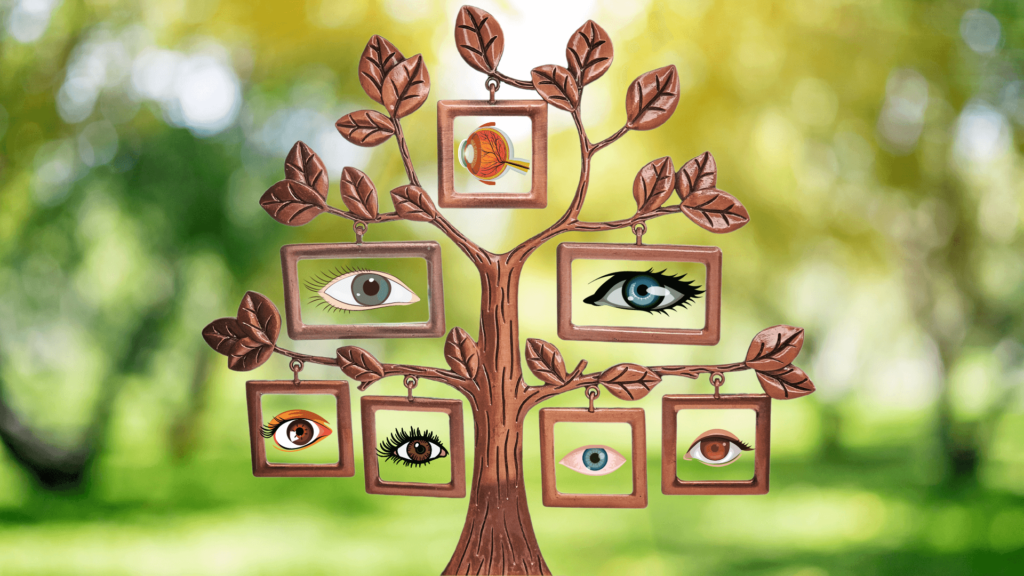In This Issue: July 2022
- Are Sunglasses Really That Important?
- Signs of Heart Disease Can Appear in Your Eyes
- Eye Care Tip of the Month: Research Your Family Eye History
Are Sunglasses Really That Important?

They can look cool on adults and adorable on kids, but are sunglasses really that important? The answer is a resounding YES. Ultraviolet radiation (UV) from natural sunlight can be damaging to your eyes, increasing your risk of:
- Cataracts
- Macular degeneration
- Eye cancer
- Growths on your eyes such as pterygium (surfer’s eye)
- Sunburn of the eyes (photokeratitis)
If you aren’t wearing sunglasses every time you go outdoors, even on cloudy days, you may be putting your vision at risk. Clouds and hazy conditions don’t block UV rays.
July is UV Safety Month, so it’s the perfect time to treat yourself (and your kids) to a new pair of sunglasses. Just make sure they provide 100% UV-A and UV-B protection and have the proper amount of impact resistance, if necessary. The darkness of the lens doesn’t always equate to more UV protection, but darker lenses may be more comfortable for your eyes when there can be reflection off water sources (such as the lake or beach). Wraparound lenses are preferred since they can limit the amount of UV rays from entering from the side.
Double Your Protection
By wearing a broad-brimmed hat with your sunglasses, your eyes will be even more protected!
We have prescription and non-prescription sunglasses at our Optical Shops. To see our vast array of options and visit with our opticians, please contact us at (702) 887-1943 or click here.
If you are experiencing any vision problems, please contact us to schedule an eye exam.
Signs of Heart Disease Can Appear in Your Eyes

You may have heard of “wearing your heart on your sleeve,” but did you know it’s also possible to wear your heart in your eyes? Our doctors may be able to detect signs of heart disease during comprehensive eye exams. When we assess your eye health, one of the areas we focus on is your retina (the back layer of your eye). Using optical coherence tomography (OTC) imaging, we can see live action of your blood vessels, nerves and connecting tissue. If your eye has been deprived of blood flow and oxygen, we might see signs of an eye stroke marked by a retinal ischemic perivascular lesion. Having regular eye exams with us could help detect cardiovascular disease in the early stages so treatment can be administered, hopefully reducing your risk of stroke or heart attack.
Please contact us today to schedule an eye exam. Call (702) 887-1943 or click the link below.
Eye Care Tip of the Month: Research Your Family Eye History

The more you know about your family’s history of eye health, the better! Some eye diseases are hereditary. You may find out that you are at a higher risk of developing certain conditions. If so, you and your eye doctor can keep close tabs on any changes in your eye health to start treatments early. So, while you’re having fun at family picnics and reunions this summer, ask if anyone has ever been diagnosed with conditions like glaucoma, cataracts, macular degeneration, etc. – and share your own eye health history with them as well.



